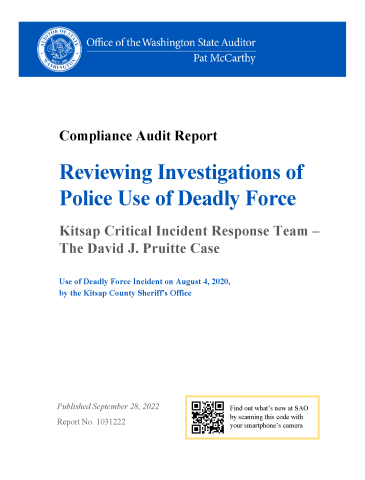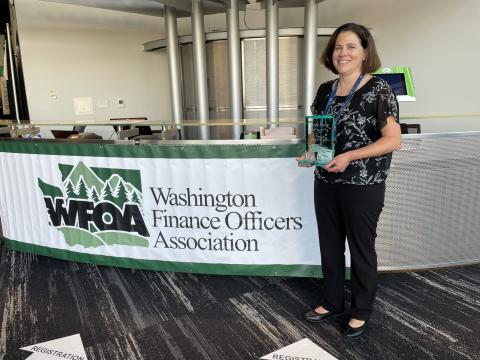The Audit Connection Blog
BARS coding for revenue received from state opioid lawsuit
Attorney General Bob Ferguson announced Oct. 3 that 125 local governments in Washington will receive $215 million under a resolution with three companies found responsible for fueling the opioid epidemic. ... CONTINUE READING
What exactly is a data breach?
While breaches at large companies often dominate the headlines, cybercriminals are also hacking local and state governments, public and private universities, and school districts. We’ve put together some helpful information on what data breaches are and the steps you should take if you suspect or know you have experienced one. ... CONTINUE READING
Cybersecurity is everyone’s job, including yours
When it comes to thwarting cybercrime, everyone in your government has a role to play. Here are a few key best practices that you and your employees can implement today to protect your government. ... CONTINUE READING
A Message from State Auditor Pat McCarthy
State Auditor Pat McCarthy discusses how the Auditor's Office has been working to maintain and even increase government accountability during the coronavirus pandemic. ... CONTINUE READING
A message from State Auditor Pat McCarthy: See yourself in cyber
Whether you work for a local government that provides frontline emergency services or an agency that handles sensitive information like personal or financial records, you have an important role in cybersecurity. ... CONTINUE READING
State Auditor’s Office releases first audits of police use of deadly force investigations
Today the Office of the Washington State Auditor released two first-of-their-kind audits related to law enforcement officers’ use of deadly force. The reports compare the investigations of such incidents to state rules and professional best practices. ... CONTINUE READING
Director Armijo honored with Award of Excellence from Washington Finance Officers Association
Sadie Armijo, the Office of the Washington State Auditor’s Director of State Audit and Special Investigations, received the 2022 Award of Excellence from the Washington Finance Officers Association (WFOA). ... CONTINUE READING
New audit reports find Mason County Fire District officials misappropriated public funds, did not comply with state laws
Today the Office of the Washington State Auditor released a fraud report and audit of Mason County Fire District No. 12, showing almost $70,000 in misappropriated public funds, as well as $95,000 in unsupported expenses. ... CONTINUE READING
SAO’s updated guide can help you implement new accounting standards
The Governmental Accounting Standards Board (GASB) releases new accounting standards nearly every year, and local governments have to evaluate and implement them. While each standard is different, the best practices for implementation are the same. That’s why we’ve updated our Best Practices for Implementing Accounting Standards to guide you through the process. ... CONTINUE READING
Reconnecting with our partners in accountability at WFOA 2022
Hello, WFOA 2022! The State Auditor’s Office is excited to be reconnecting with our partners in government accountability at the first in-person WFOA annual conference in three years. We’re bringing our ‘A’ (audit) game this year with four pre-conference trainings and 13 sessions. If you can't make it, you can read the highlights in our special Audit Connection newsletter. ... CONTINUE READING










